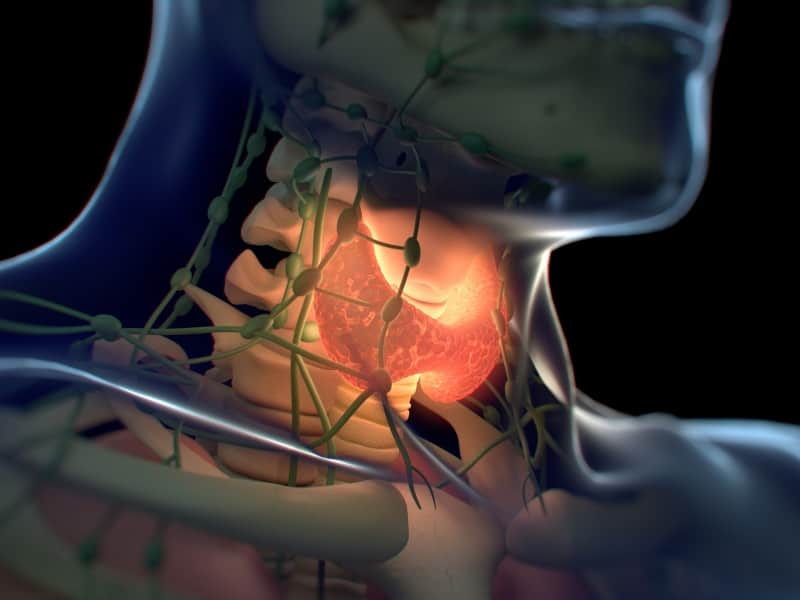Early onset of menstruation may be linked to risk of thyroid failure
Subclinical hypothyroidism is considered an early, mild form of thyroid failure. Since women are affected two to five times more often than men, a team of researchers from Greece set out to explore whether reproductive factors – particularly the onset of menstruation – might be associated with this condition.
By Maria Dalamaga
Thyroid hormones help to regulate heart, brain, and metabolic functions. In subclinical hypothyroidism – an early, mild form of thyroid failure – the amount of thyroid hormones produced by the thyroid gland is still within normal laboratory reference ranges. Only the level of thyroid-stimulating hormone produced by the pituitary gland (a pea-sized gland in the brain) is slightly elevated.
It is estimated that 3 to 8 percent of people have subclinical hypothyroidism, which frequently progresses to full-blown hypothyroidism. The majority of patients do not present any symptoms, while others may suffer from fatigue, depression, weight gain, constipation, hair loss, intolerance to cold, and other symptoms. Subclinical hypothyroidism can also be associated with heart disease, abnormal lipid levels and high blood pressure.
Association between age at first period and the risk of thyroid failure
Age, female gender and autoimmune thyroid diseases, particularly Hashimoto’s thyroiditis, are considered the most important risk factors for subclinical hypothyroidism. Since the condition is more common in women, researchers have been speculating that reproductive factors, particularly those related to menstruation, may be of great importance.

To investigate the matter, a group of researchers from Greece compared women suffering from subclinical hypothyroidism with healthy women of the same age. They discovered that women affected by the condition reported an earlier onset of menstruation, an older age at first pregnancy and a lower number of full-term pregnancies than healthy participants. However, only the age at first menstruation was independently associated with the risk of subclinical hypothyroidism beyond other risk factors. The findings were recently published in the journal Hormone Molecular Biology and Clinical Investigation.
Puberty comes earlier for girls today
An early onset of menstruation has also been associated with several other conditions, such as breast cancer, cardiovascular disease, type 2 diabetes, decreased bone mineral density, pre-eclampsia and some autoimmune disorders.
Nowadays, girls are getting their periods earlier and earlier. A variety of factors like lifestyle, a Western diet, socio-economic status and environmental factors are said to cause this phenomenon. While it is unlikely that the onset of menstruation is the cause of subclinical hypothyroidism per se, the researchers presume it could be an indicator of an underlying process. They theorize that early exposure to estrogens (the primary female sex hormone) could trigger thyroid autoimmunity, meaning the body “mistakenly” attacks the thyroid by producing antibodies. This in turn could result in the manifestation of subclinical hypothyroidism.
To investigate the link between menstrual hormonal factors and thyroid disorders further, more large prospective studies are now needed to shed light on this intriguing association.
Read the original article here: